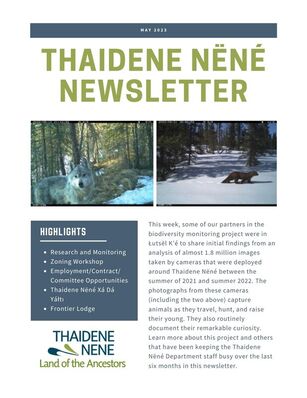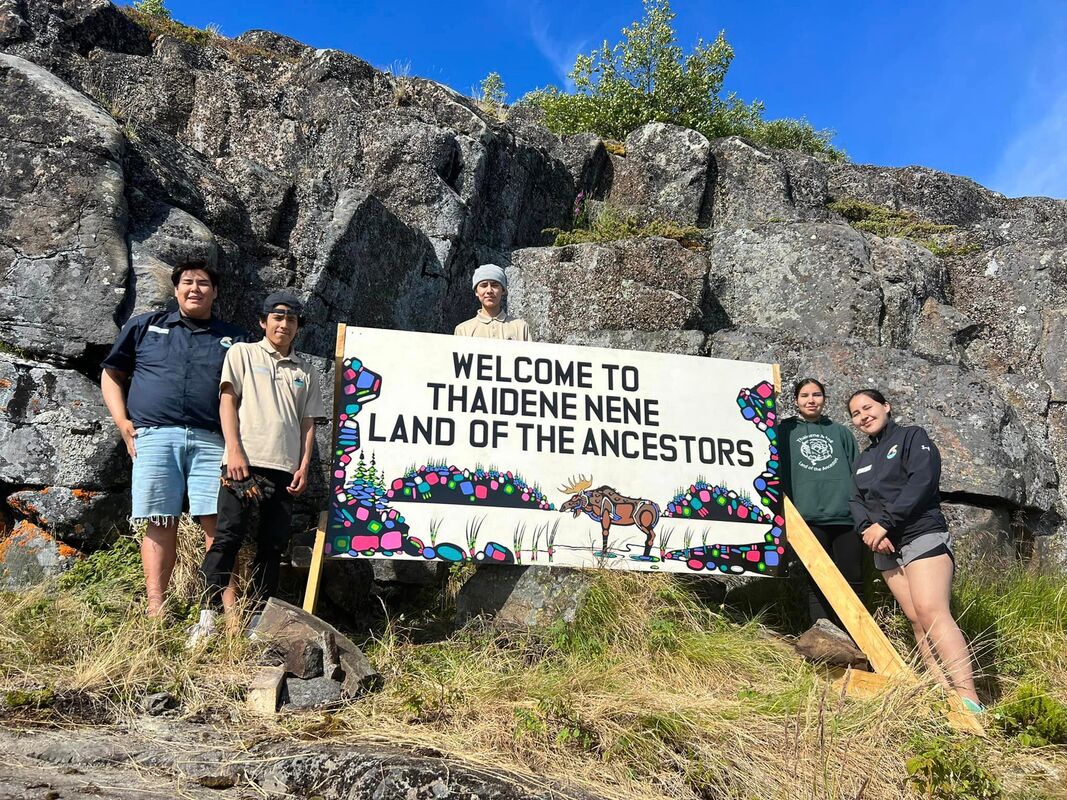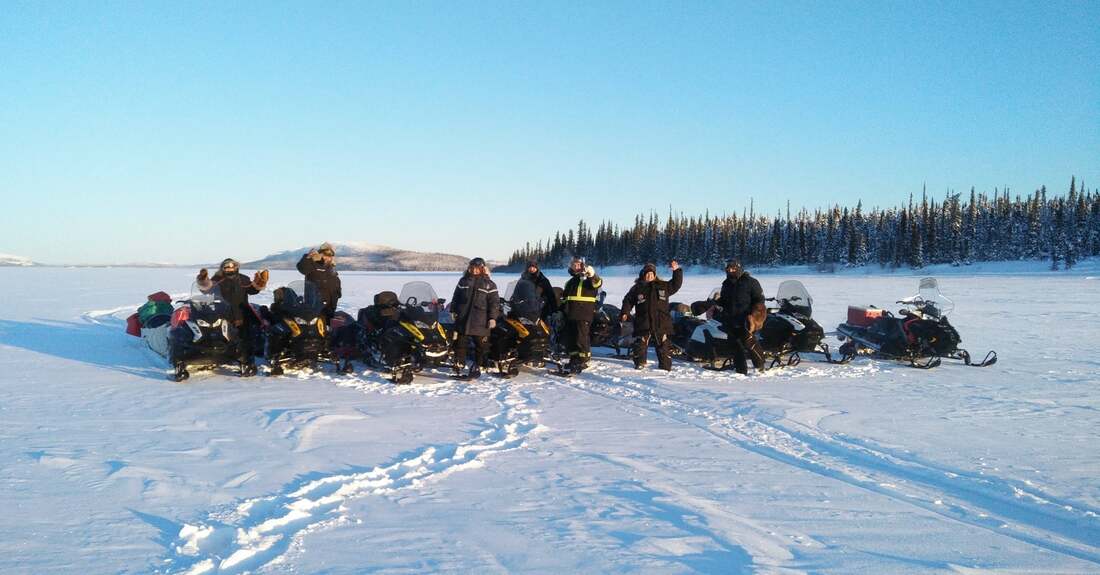 It's newsletter time! This issue has information and updates on the biodiversity monitoring program, the lake ice monitoring program, a recent zoning workshop, Thaidene Nëné Xá Dá Yáłtı, and Frontier Lodge. It also has a FULL PAGE of employment, contract, and committee opportunities. If you have suggestions for the newsletter or for Thaidene Nëné communications and/or operations, please let us know. Our door is always open. We will have paper copies for community members shortly. In the meantime, check out the digital version. The Thaidene Nëné Department is growing!
We are looking to fill a newly created position. The Thaidene Nëné Project Coordinator will be responsible for supporting the management of the Thaidene Nëné Department and the Ni Hat’ni Dene program, and leading certain projects and initiatives of the the Thaidene Nëné Department. The deadline to apply is May 30, 2023. If you are interested in this exciting new position within Thaidene Nëné, please submit your updated resume and covering letter to Thaidene Nëné Office or LKDFN Office Reception or email to manager@thaidenenene.ca or hrlkdfn1@gmail.com.  The Thaidene Nëné Department is hiring six (6) summer students. The summer students will work alongside the Ni Hat’ni Dene guardians. These positions are located in Łutsël K’é. Responsibilities will include, but are not limited to:
Applicants must be youth (15-30 years old) and be physically fit. They should also have good communications skills and work well in a team environment. Knowledge of Łutsël K’é Dene natural and cultural heritage and the ability to speak and/or understand the Dënesųłıné language are assets. If you are interested in being a summer student in the Thaidene Nëné Department, please submit an updated resume and cover letter to manager@thaidenenene.ca or come to the Thaidene Nëné office. DEADLINE TO APPLY: May 15, 2023 START DATE: June 12, 2023  The Thaidene Nëné Department is hiring four half-time guardians for two-year term positions to work with the year-round Ni Hat'ni Dene program. Ni Hat’ni Dene means watchers of the land in Dënesųłıné. Ni Hat'ni Dene are the guardians of the Thaidene Nëné Indigenous Protected Area. They maintain the cultural and ecological integrity of Thaidene Nëné; they welcome and educate visitors to the area; and they transmit cultural and scientific knowledge to younger generations. Applicants should have strong knowledge of LKDFN's natural and cultural heritage, be physically fit, and have experience operating boats, skidoos, and small engines. The ability to speak and understand the Dënesųłıné language is an asset. The deadline to apply is Friday, March 31, at 5pm. Interested applicants should submit an updated resume and cover letter to the Thaidene Nëné Office or LKDFN Office Reception or email to manager@thaidenenene.ca or hrlkdfn1@gmail.com. The parties are seeking expressions of interest for a contract opportunity to support the creation of an operational vision for the Thaidene Nëné Indigenous Protected Area.
Thaidene Nëné Xá Dá Yáłtı is the operational management board of the Thaidene Nëné Indigenous Protected Area. Board members are appointed by the Łutsël K’é Dene First Nation, Northwest Territory Métis Nation, Parks Canada, and the Government of the Northwest Territories, and supported by senior representatives from each of the parties. Although decision-making is shared, the parties have different operational responsibilities and capacities. As the operational parties work to implement the vision for Thaidene Nëné set out in the establishment agreements, ensuring operational coordination, growth, and efficiencies is a key priority. This contract involves background research, interviews, workshop design and facilitation, and reporting. The parties wish for the contract to commence as soon as possible with a target completion of fall 2023. Please direct any questions and expressions of interest to Jon Weller (jon_weller@gov.nt.ca | 867-767-9233 ext. 53068) before Friday, April 21. |
AuthorWrite something about yourself. No need to be fancy, just an overview. Archives
March 2024
Categories |
CONNECT |
VISIONWe are the Lutsel K’e Dene First Nation. Our vision for Thaidene Nëné is:
Nuwe néné, nuwe ch'anıé yunedhé xa (Our land, our culture for the future). We’re working with our partners to permanently protect Thaidene Nëné—part of our huge and bountiful homeland around and beyond the East Arm of Tu Nedhé. |
